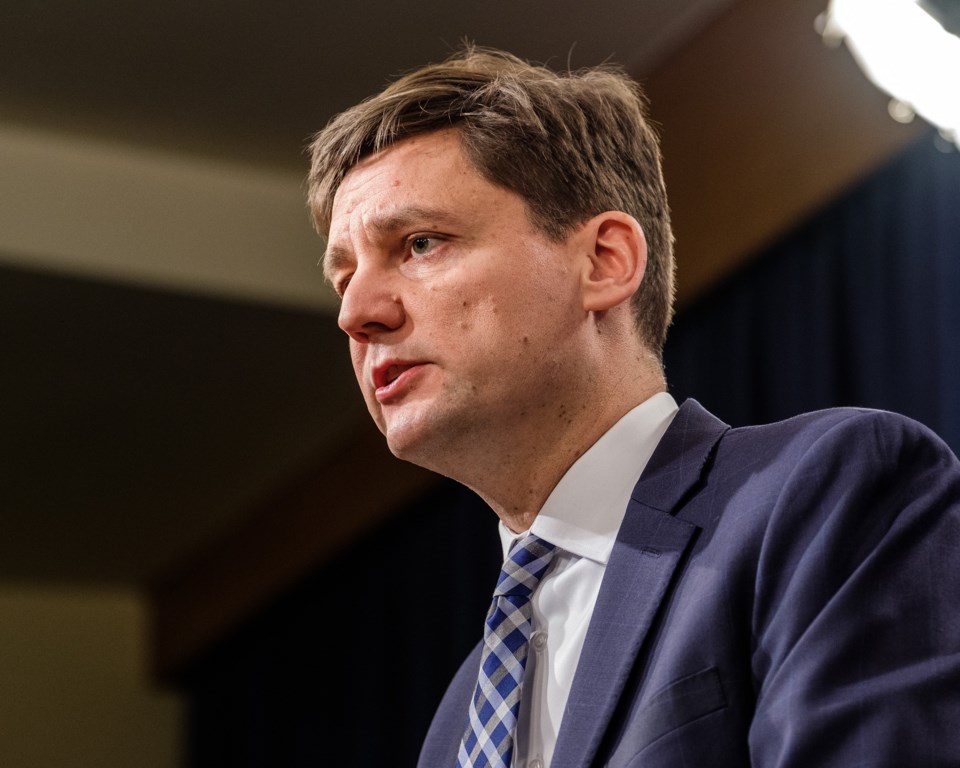 Dirty money coursing through the luxury-car market was widely assumed. That’s why it’s under investigation. So the report Tuesday confirming as much didn’t surprise anyone.
Dirty money coursing through the luxury-car market was widely assumed. That’s why it’s under investigation. So the report Tuesday confirming as much didn’t surprise anyone.
But the tax break that money launderers have been exploiting with abandon over the past several years is a new wrinkle in the saga.
Consultant Peter German, who has been taking a deep dive into money laundering for Attorney General David Eby, released another instalment focused on luxury cars.
B.C. gangsters live — and die — in high-end vehicles, but that’s only part of Vancouver’s emergence as the luxury-car capital of North America. It has provoked sustained suspicion, confirmed by car dealers, who told German of routinely dealing with suspicious buyers with shopping bags full of cash.
Suspicious individuals are also selling them overseas for huge profits that are returned in clean money, as opposed to the bags of cash used to purchase them from compliant dealers.
And when they do so, they get a perfectly legal refund of the sales tax they paid.
German said there has been an explosion in the number of “grey market” vehicles exported to China since 2013. The fewer than 100 shipped in 2013 grew to more than 4,440 in 2018.
German said “straw buyers” are used to close the deals in Vancouver. Then they are exported to China, where there’s a huge markup.
“B.C.’s unique geographic location and ethnography make it an incredibly attractive venue for this activity.”
Because the cars are legal and all taxes have been paid, authorities can’t seize them, even if money laundering is suspected.
The cherry on top of this corrupt mess is that if the vehicle is sold for export, the sales tax has to be refunded.
The huge jump in export numbers means about $85 million in provincial sales-tax payments has been returned over the past several years.
German said data from the Finance Ministry show refunds have been issued on 14,000 purchases over the past five years. With the sales tax between 10 and 20 per cent of the purchase price, the average refund is $6,300. In 2018 alone, $28 million was refunded.
Exporting a car to a country where it’s worth more if resold is legal. It’s not clear in the report how many such deals are legitimate. But German and the Finance Ministry are profoundly suspicious of the deals.
The ministry told German some documentation looks altered or inconsistent, individuals have done multiple deals and, in many cases, the buyer shows a Chinese passport rather than a B.C. driver’s licence.
German said the ministry has had to hire extra staff to process the tens of millions in benefits being bestowed on questionable buyers.
Eby expected German’s major findings to some extent, but “the piece about the provincial sales tax refunds was totally shocking to me,” he said. He said it was “incredibly disturbing” to the premier and finance minister, and new restrictions are in the works.
The Finance Ministry has specific data on the straw buyers and on which dealerships are doing business with them. But officials declined to share it with German because of privacy law.
It’s not just B.C. that’s getting played. The exported vehicles are being purchased for business purposes, but they’re presented as private individuals. So they aren’t required to pay the federal GST, German said.
He has already filed a report on money laundering in casinos with similar findings.
The latest report on luxury cars is the prelude to a report on money laundering in the real-estate industry.
It’s expected to be the main event.
Just So You Know: The majority of the suspicious luxury-car activity is in Vancouver. But the following posting is on Craigslist’s Victoria page, with the advertiser pinpointed in Vic West.
“Earn quick cash! We are looking for people to act as a buyer for us to buy brand new vehicle from luxury dealership. Your work schedule can be extremely flexible, and the buying process is extremely easy.”



